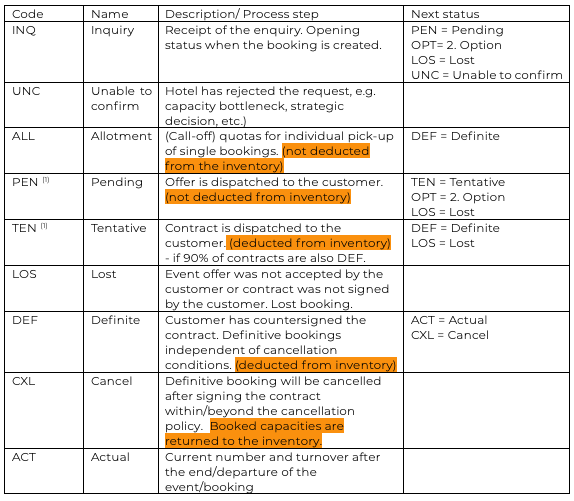The booking status is relevant for the planning of every company. On the one hand, it is important for internal planning so that it is always clear how many capacities are booked and which are still open. On the other hand, it is an important key figure for forecasting the coming months and years.
Surprisingly, this reservation status is not precisely documented and tracked in every company. On the one hand, this leads to confusion, but also to lost bookings. If, for example, a room, trip or space is already set as booked, even though the offer or contract has been sent to the customer but not yet officially confirmed, the real sales figures and sales expectations become blurred.
For this reason, it is vitally important to know the individual gradations of booking status and their effects. If implemented consistently, clear booking patterns can be derived and lead times determined.
(Block) Reservation status and their sequence
Regardless of the number of status types, there are only two options regarding the inventory. One is called deducted (deducted from the inventory) and non-deducted (not deducted from the inventory).

[1] However, in order to optimise operational processes in Group Convention Sales, the sending of an “offer/contract” document to the customer and the use of a booking status (Tentative) has become increasingly common. In this case, the booking status TEN (Tentative) should be entered as non-deducted.
Groups of coach tour operators are often entered as deducted and non-deducted (e.g. 60%/40%) due to the cancellation conditions, although the signed contract is available.
Note:
It is important that the booking status is used consistently depending on the market segment. Cancellation periods should not play a role in deciding when a booking is set to DEF (deducted). If the booking status is used consistently, the “wash factors” determined on this basis will help with revenue management and forecast planning.






